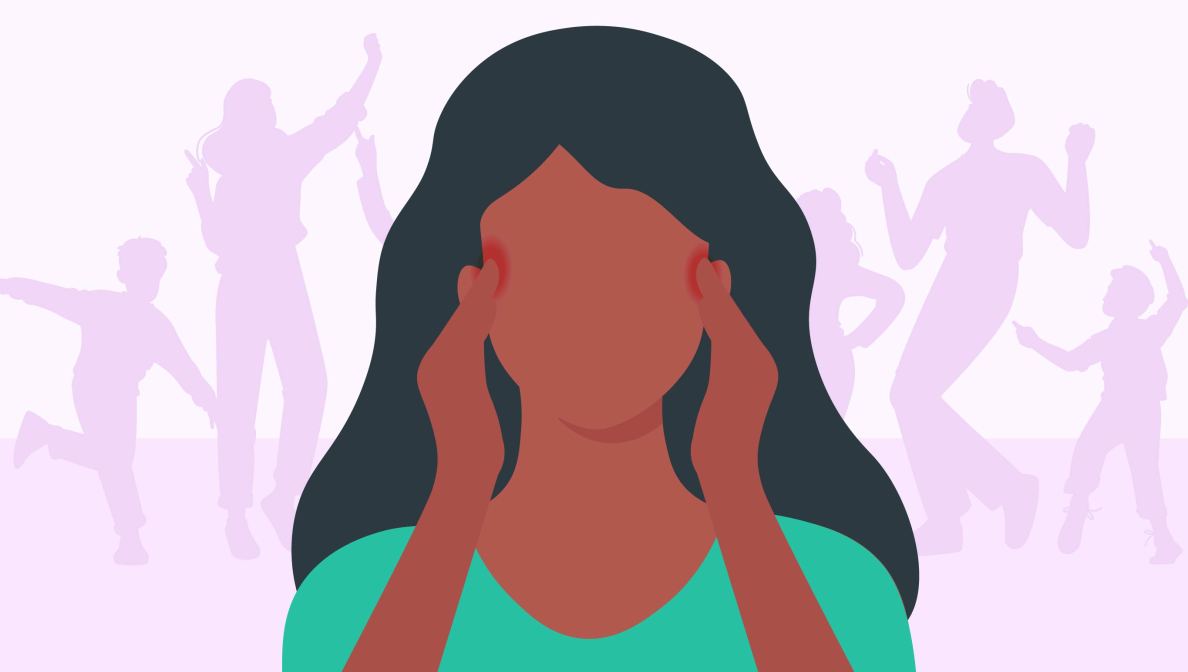Making a Difference in Migraine Care
Through strategic partnerships, Organon is reshaping how the world sees migraine care and supports people living with migraine.
April 16, 2025

Migraine is a disabling neurological condition affecting approximately 1 billion people globally.1 Despite its widespread impact, it is often overlooked. Women are also two to three times more likely to suffer from migraines compared to men2, often facing long delays before receiving an accurate diagnosis and proper care.2,3
A recent survey across 10 European countries found that over one-third of respondents had to visit at least four specialists before receiving a migraine diagnosis.4 This delay not only affects quality of life – it comes with personal and professional consequences, too.
Organon is working to change that by collaborating with like-minded partners to reduce stigma associated with migraine and improve outcomes for patients.

“Across many markets, we’ve seen that migraine remains underdiagnosed, undertreated, and misunderstood, despite the huge negative personal and economic toll it takes,” said Nico Van Hoecke, President of International Commercial at Organon. “As a company dedicated to finding solutions for conditions that disproportionately affect women, we remain focused on awareness and preventative care in this space.”
Creating Migraine-Friendly Workplaces
Migraine can disrupt workplace productivity5 both during attacks and between episodes.6
Through strategic partnerships with organizations such as the European Migraine & Headache Alliance (EMHA), Organon is reshaping how the world sees and supports people living with migraine.

A key part of this effort is the Migraine Friendly Workplace Initiative, which promotes more inclusive and supportive work environments. The goal: create spaces where employees feel empowered to speak openly about their struggles with migraine, rather than feeling pressured to push through in silence. By offering support and resources to employees worldwide, Organon aims to set a new standard for workplace awareness and acceptance.
“Migraine deserves serious attention and empathy because, frankly speaking, a lot of people don’t understand what it means to have a migraine. It’s not just a headache – it’s a serious health issue and a matter of workplace equity,” said Van Hoecke. “The EMHA is helping us bring attention to this condition by amplifying patient voices to help shift the public perception around migraine.”
Closing the Migraine Care Knowledge Gap
While changing how migraine is treated in the workplace is essential, broader change depends on improving understanding across the entire healthcare system. The reality is that misunderstanding and stigma around migraine persist.7
That’s why Organon is advancing education and awareness around migraine care. Partnerships around the globe, including EMHA and the Spanish Society of Neurology (SEN) can amplify education of the latest advancements in migraine treatment and spark innovative dialogue among healthcare professionals, researchers, and patients.
“Through my work, I’ve seen the patient journey up close. Some migraine patients have to wait several years between first diagnosis and access to preventative treatment,” said Van Hoecke. “We need to prioritize education and awareness, so that patients are empowered, providers are better informed and positive change can happen as soon as possible.”
Driving Global Change in Migraine Support

Organon continues to explore new ways to support the global migraine community, staying committed to transforming migraine care and easing the burden of this debilitating condition.
“At Organon, we want to be a catalyst for change globally,” said Van Hoecke. “Based on what we’ve learned in Europe, we’re actively exploring ways to expand collaborations in other parts of the world. Any progress we can make in expanding access to preventative migraine treatments in international markets will be a really good day for patients.”
Together with partners, Organon is shaping a future where migraine no longer goes unseen or untreated. By fostering strategic partnerships and promoting workplace inclusivity, Organon is helping to ensure that those affected by migraines have the support and resources they need to lead healthier, more fulfilling lives.
- Dong L, Dong W, Jin Y, Jiang Y, Li Z, Yu D. The Global Burden of Migraine: A 30-Year Trend Review and Future Projections by Age, Sex, Country, and Region. Pain Ther. 2025;14(1):297-315. doi:10.1007/s40122-024-00690-7
- Smitherman TA, Burch R, Sheikh H, Loder E. The prevalence, impact, and treatment of migraine and severe headaches in the United States: a review of statistics from national surveillance studies. Headache. 2013;53(3):427-436. doi:10.1111/head.12074
- Faubion SS, Batur P, Calhoun AH. Migraine Throughout the Female Reproductive Life Cycle. Mayo Clin Proc. 2018;93(5):639-645. doi:10.1016/j.mayocp.2017.11.027
- Vaghi G, De Icco R, Tassorelli C, Goadsby PJ, Vicente-Herrero T, de la Torre ER. Who cares about migraine? Pathways and hurdles in the European region – access to care III. J Headache Pain. 2023;24(1):120. Published 2023 Sep 1. doi:10.1186/s10194-023-01652-8
- Begasse de Dhaem O, Robbins MS. Cognitive Impairment in Primary and Secondary Headache Disorders. doi:10.1007/s11916-022-01039-5
- Brandes JL. The migraine cycle: patient burden of migraine during and between migraine attacks. Headache. 2008;48(3):430-441. doi:10.1111/j.1526-4610.2007.01004.x
- Shapiro RE, Nicholson RA, Seng EK, et al. Migraine-Related Stigma and Its Relationship to Disability, Interictal Burden, and Quality of Life: Results of the OVERCOME (US) Study. Neurology. 2024;102(3):e208074. doi:10.1212/WNL.0000000000208074